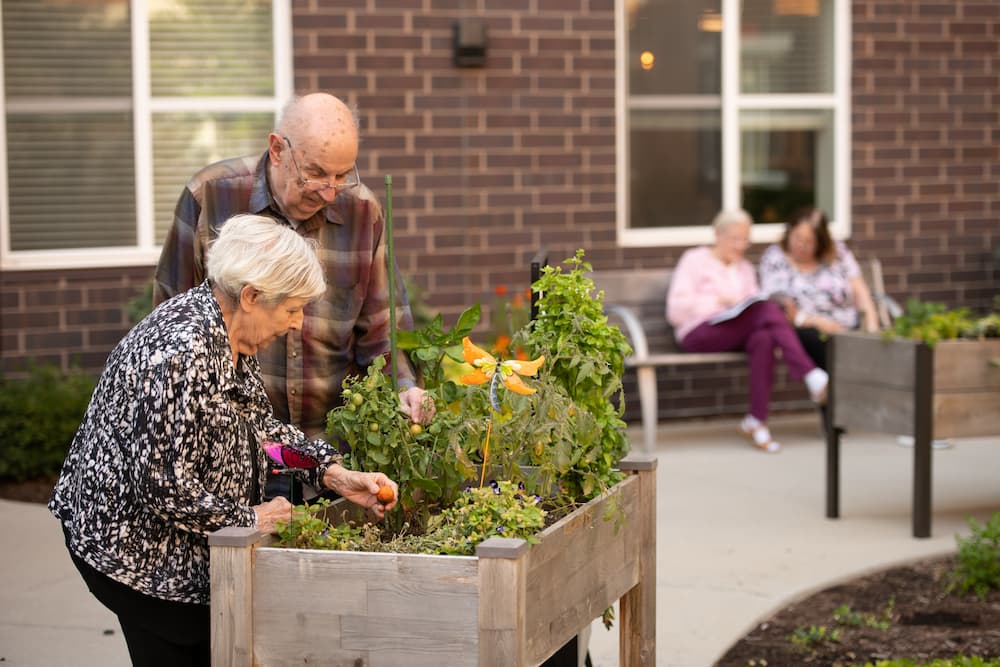
Understanding the stages of Alzheimer’s dementia helps families and caregivers anticipate needs, plan care and choose the right support options. At The Carrington at Lincolnwood in Lincolnwood, IL, our MOSAIC Personalized Memory Care program guides residents through every step of cognitive change in a safe, purpose-built environment. Here, we outline the seven stages of Alzheimer’s dementia, explain typical progression, and offer practical advice on caring for a loved one and exploring memory care options.
What are the seven stages of Alzheimer’s dementia?
The Global Deterioration Scale (GDS), developed by Dr. Barry Reisberg, defines seven stages of Alzheimer’s dementia based on the severity of cognitive and functional decline. Early stages capture subtle memory changes while later stages involve significant loss of independence and communication skills.(Alzheimer’s Association)
How does Alzheimer’s dementia progress?
Alzheimer’s typically begins with brain changes years before symptoms appear. As Alzheimer’s plaques expand, mild memory lapses give way to worsening confusion, impaired daily function and eventually, profound loss of independence. Progression speed varies by type, overall health and care environment.
Stage 1: No cognitive impairment
In Stage 1, individuals show no noticeable memory problems or functional decline. They remain fully independent in work and social life. Brain changes may already be underway, but clinical testing would find no deficits.
Stage 2: Very mild cognitive decline
Seniors may notice benign lapses like misplacing objects or forgetting names. These changes often resemble normal aging and rarely prompt medical evaluation. Close friends or family might spot occasional memory slips, but daily routines remain intact.
Stage 3: Mild cognitive decline
At this stage, memory issues become more apparent. People may struggle with word recall, lose items more frequently or have difficulty concentrating. Mild cognitive impairment (MCI) is often diagnosed here.
How quickly can early-stage dementia progress to a dementia diagnosis in the elderly?
Research shows that 10 to 15 percent of individuals with MCI progress to dementia each year. Over six years, more than 80 percent may develop full Alzheimer’s dementia, though rates vary by setting and underlying cause (Nature).
Stage 4: Moderate cognitive decline
Stage 4 involves clear deficits in performing complex tasks. Individuals may forget recent events, have trouble managing finances and show reduced orientation to time or place. Assistance with planning and organization becomes beneficial.
Stage 5: Moderately severe cognitive decline
In Stage 5, people require help with day-to-day activities such as choosing proper clothing or remembering significant personal details. They may still recognize close family members and perform simple self-care but need supervision to remain safe.
Stage 6: Severe cognitive decline
By Stage 6, memory loss deepens. Individuals often forget names of close relatives, experience major personality changes and need extensive assistance with bathing, dressing and toileting. Sundowning—agitation and confusion in late afternoon—becomes common.
Stage 7: Very severe cognitive decline
Stage 7 is marked by profound impairment. Speech may be limited to single words or grunts. Motor skills deteriorate, so walking and eating require full support. Incontinence is typical and residents rely entirely on caregivers for all basic functions.
How long does this end stage of Alzheimer’s dementia last?
The final stage lasts between 1.5 to 2.5 years, though individual experiences vary. With specialized care and appropriate life support, some may live longer, but most require around-the-clock assistance by this point (Healthline, AgeSpace).
How fast does this type of dementia progress?
Overall progression from preclinical changes to end stage can span 8 to 12 years, but individual courses vary. Alzheimer’s disease follows an average trajectory of 8 to 10 years from symptom onset to death, with earlier stages often slower and later stages accelerating (Medical News Today, Alzheimer’s Association).
How long do people live with Alzheimer’s dementia?
Life expectancy after an Alzheimer’s diagnosis depends on a person’s age, stage of dementia and health status. Studies report an average survival of 4–8 years, ranging from as little as 2 years in older men to up to 9 years for younger women diagnosed at 60 (Alzheimer’s Association).
How to care for a loved one with Alzheimer’s and other types of dementia
- Establish routine. Consistent daily schedules reduce confusion and agitation.
- Create a safe environment. Remove trip hazards, install grab bars and consider door alarms for wandering.
- Use clear communication. Speak slowly in short sentences, maintain eye contact and allow time for responses.
- Focus on abilities. Engage in activities the person can still do—sorting objects, listening to music or guided art projects.
- Manage behavior. Recognize triggers for anxiety or aggression and use distraction or calming techniques.
- Get support. Caregivers can seek respite care, join support groups and use community resources to prevent burnout.
At The Carrington at Lincolnwood, our MOSAIC memory care neighborhood offers specialized training for staff, personalized activity plans and secure layouts designed to support safety and dignity.
Memory care options
When in-home care becomes challenging, consider memory care communities that specialize in all types of dementia support. Options include:
- Adult day programs. Offer social engagement and supervision during daytime hours.
- Specialized assisted living. Combines personal care services with dementia-focused activities.
- Dedicated memory care neighborhoods. The Carrington’s MOSAIC program, features secure indoor and outdoor spaces, personalized activities and staff trained in dementia care.
Memory care costs at The Carrington start at $8,500 a month, and we provide assistance with processing long-term care insurance claims. We encourage you to plan a visit to see firsthand how our daily life and social engagement support residents through each stage.
Recognizing Alzheimer’s dementia stages, and understanding what to expect at each phase empowers families and caregivers to plan effective support. Whether your loved one is in the early stages or advanced decline, The Carrington at Lincolnwood offers tailored programs, personalized care plans and a compassionate community committed to every resident’s well-being. For more information about our memory care options and to schedule a visit, contact us today.
